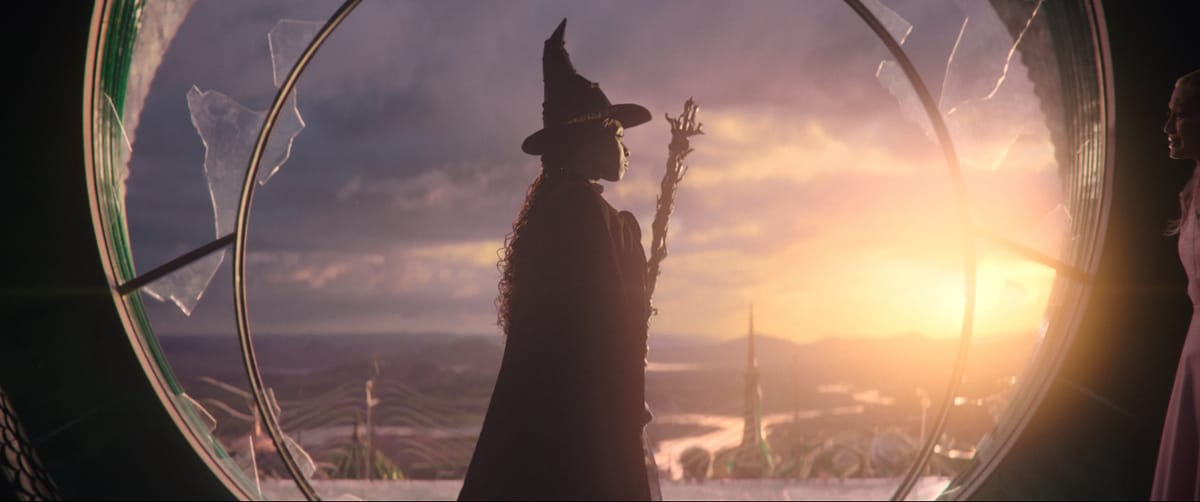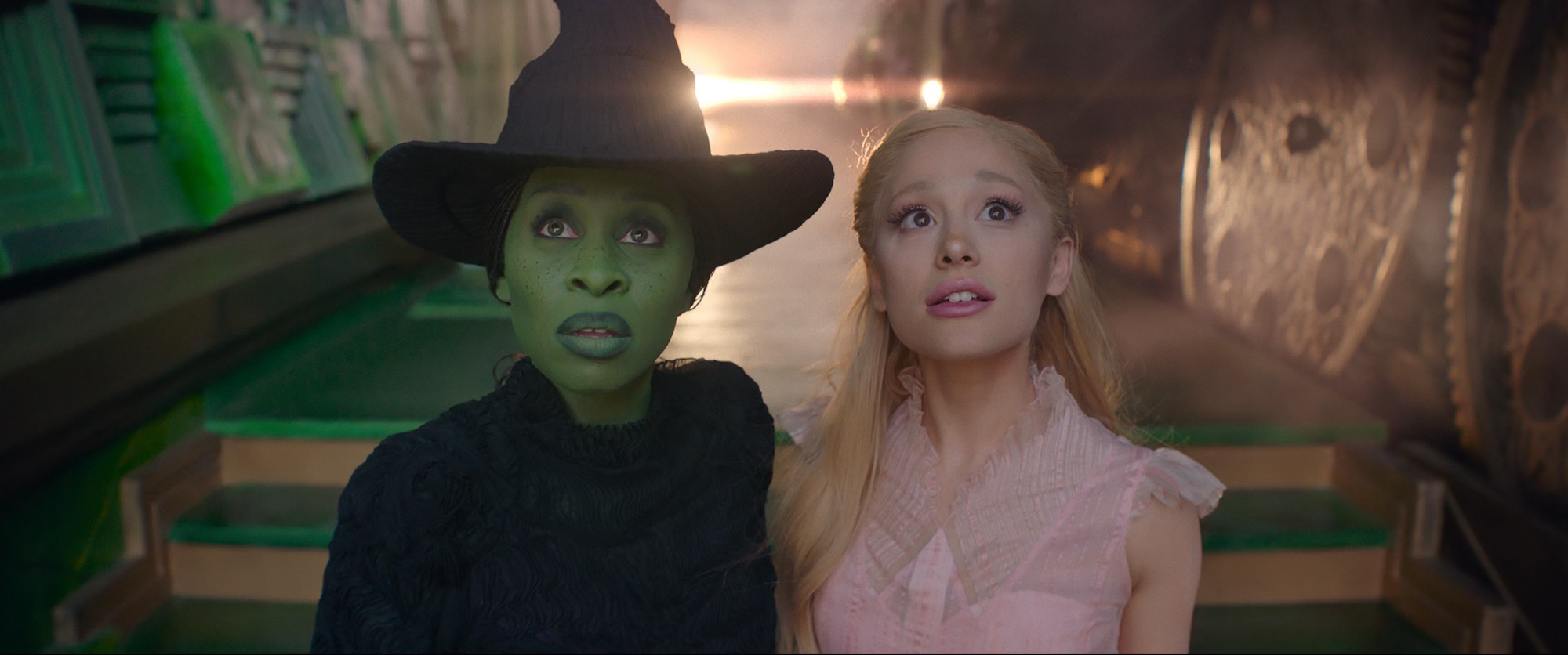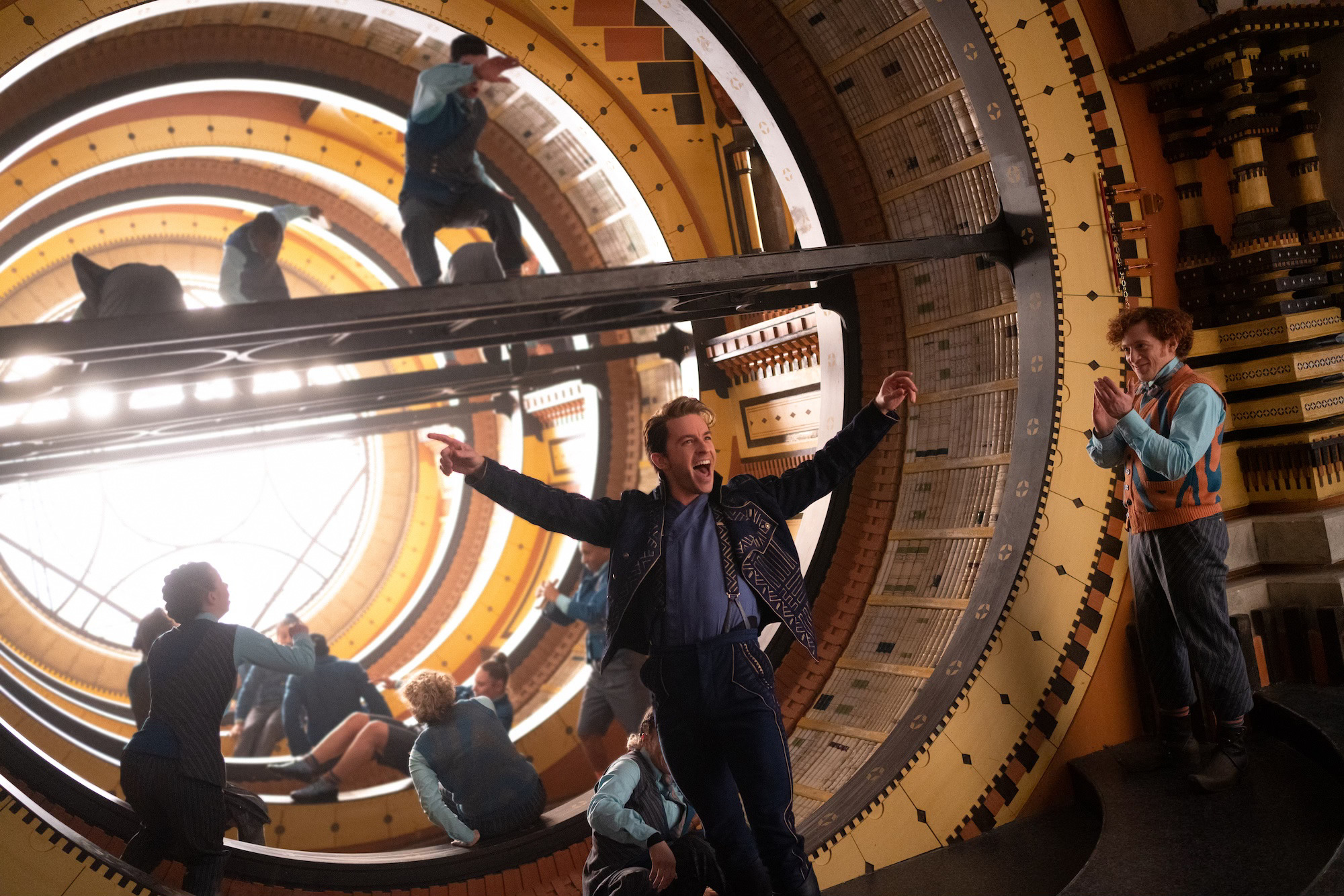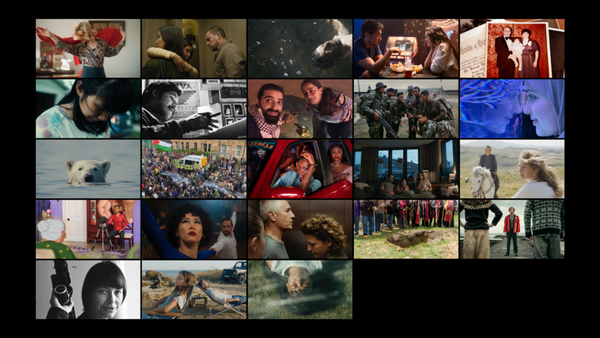‘Wicked’ Is the Rare Adaptation That’s Better Than Its Stage Version
Jon M. Chu’s adaptation of the musical’s first act gives the story more room to breathe.

Today, I’m excited to share Matt Goldberg’s review of Wicked. If you enjoy Matt’s writing, be sure to check out his newsletter, . -David Chen
I’m lukewarm on the Broadway production of Wicked. I saw it for a second time last year, and I feel like its production design and songs manage to cover up some of its storytelling deficiencies. Despite the admirable attempts to make this a narrative about acceptance and prejudice, the speed of the stage production undercuts the chance to explore those ideas. They serve the purposes of plot rather than forcing the audience to sit with the emotional impact of the themes. It’s a show where the heavy lifting comes from the music and knowing the Wizard of Oz story, such that you can appreciate the ways it gets subverted.
For fans of the show, they might bristle and wonder how Jon M. Chu’s screen adaptation could possibly live up to the Tony-winning production that’s wowed audiences since 2003, especially when you consider that as a movie, Wicked: Part I is as long as the entire stage show. I went in with a bit of skepticism due to the runtime and my feelings about the source material, and then Chu had to go ahead and make something magical. It’s still Wicked to its core, but Chu’s film gives the narrative and the numbers space to explore and land in a way that a stage show never could. Chu wisely uses the basic language of cinema—close-ups, editing, framing—to provide more depth to the characters and their world.
If you haven’t seen the show, it’s a spin on The Wizard of Oz. We come in with the Wicked Witch of the West having just been melted by Dorothy, then Glinda the Good Witch (neé Galinda) tells the Munchkins they don’t know the whole story. We then flashback to see Wicked-Witch-to-Be Elphaba (Cynthia Erivo) and Galinda (Ariana Grande) meeting at Shiz University, a college in the land of Oz. In this Oz, everyone worships the Wizard (Jeff Goldblum) and shuns those who are different like the green-skinned Elphaba. Galinda wants to be a sorceress, but the school’s magic instructor, Madame Morrible (Michelle Yeoh), only wants to teach Elphaba, who possesses innate magical talent. The enmity, rivalry, and eventual friendship between Elphaba and Galinda is what forms the backbone of the story against the backdrop of an increasingly totalitarian Oz.
For all the expansion and patience Chu has with his movie, he understands that unless we buy into the relationship between Elphaba and Galinda, nothing else will work. Thankfully, Erivo and Grande easily glide into the massive shoes left by the roles’ originators, Idina Menzel and Kristin Chenoweth, respectively. Their chemistry grounds the entire movie with both actors leaving their stamp on the role. It’s all well and good that Erivo can hit the notes in “Defying Gravity,” the show’s signature song, but one would expect any actor cast to be able to sing the numbers (expected, but not always a certainty). Erivo delivers the sadness, pathos, rage, and emotional armor that slowly gets chipped away by the bonds she forms with Galdina as well as the handsome and charming Prince Fiyero (Jonathan Bailey). She’s a sharp enough actor to know she doesn’t need to play to the rafters here, and instead lets the camera read her quiet expressions to speak volumes.

This also allows for a nice contrast against the effervescent Grande. You can see two smart actors not only investing in their characters but understanding how the dynamic fuels the story. You can’t have Galinda and Elphaba try to outdo each other, and just like their signature colors of green and pink, Grande and Erivo know how to both contrast and complement each other. While Erivo handles the emotional drama of the movie, Grande relishes the comic absurdity of Galinda without rendering her a caricature. There’s certainly a temptation with the role to go more cartoonish, but instead Grande uses her brilliant comic timing to accentuate Galinda’s shallow and self-centered traits without ever rendering her an out-and-out mean girl. We’re always going to root for the underdog Elphaba, but it’s important to make sure we never turn on Galinda.
The two leads as well as the rest of the cast have the space to shine because Chu’s movie is willing to accommodate them. We’ve seen far too many musicals, especially adaptations of animated Disney movies, get inflated with nothing worth adding. They load up on plot beats like “Did you know Belle’s mom died of the plague?” and forgettable songs while losing track of why people liked the musical in the first place. There’s an extra hour here, but little of what’s new feels like it’s trying to inflate the story beyond what it will hold. Instead, Chu’s Wicked is patient. It knows how to hold a beat or spend a bit more time on a character without changing the shape or flow of the overall narrative.
Chu also doesn’t get lost down a CG rabbit hole, and while there’s plenty of CG in the movie, I was surprised and heartened that so many numbers take place on physical sets. While it’s clear that large backdrops are animated, Wicked is clearly a movie that valued hand-crafted production from the gorgeous, inventive sets (“Dancing Through Life” is particularly impressive in the circular library that emphasizes Fiyero’s freewheeling nature) and stunning costumes. Wicked is a big, lavish musical, but not one where it feels like all the real work is being done in post on a computer.

There’s so much care invested here that you can see Chu’s vision wasn’t to break Wicked apart or contort it into a shape for people who don’t care for musicals. It was to take a stage show that was already visually distinct and render it cinematic beyond the obvious flair. Most directors would know to use CG animals rather than a human dressed like an animal as they do in the stage production. But Chu is sharp enough to make sure the main animal character, Doctor Dillamond, is voiced by a great actor (Peter Dinklage) and that through close-ups, pacing, and action, we feel the prejudice directed at him and why Elphaba connects to him as a fellow outsider. It’s the difference between solving the problem (use CG) and succeeding at the challenge (making sure the audience cares about Dillamond as much as Elphaba does).
Perhaps purists will reject this version of their beloved musical, but when we’ve seen so many other adaptations of Broadway musicals fall flat, it’s worth celebrating Chu’s respect for the material without being so devoted that he renders it artistically inert. Throughout his career, Chu has shown his unique talent for marrying music and film, whether it’s in concert documentaries (Justin Bieber: Never Say Never and Justin Bieber: Believe), dance movies (Step Up 2: The Streets and Step Up 3D), or another celebrated musical (In the Heights). It took a long time to get Wicked to the big screen, but with his adaptation of the first act (Part II is due next November), Chu makes this musical soar. -Matt Goldberg
Stuff David Chen Has Made
- Over on The Filmcast, we re-watched Ridley Scott’s original Gladiator in preparation for our Gladiator II review next week. Still a great movie!
- On Decoding TV, we discussed the season finale of The Penguin, which ended up being probably the best example of this type of show (i.e. something that fills in the gap between major films in this universe).
- [PAID ONLY] On my personal Patreon page, I was thrilled to be able to collaborate with Tansy Gardam from the Going Rogue podcast to discuss our (fairly negative) thoughts on Joker: Folie à Deux. Listen here.
- On my YouTube channel, I shared my reaction to the new live action How To Train Your Dragon trailer. So far: not a fan?



